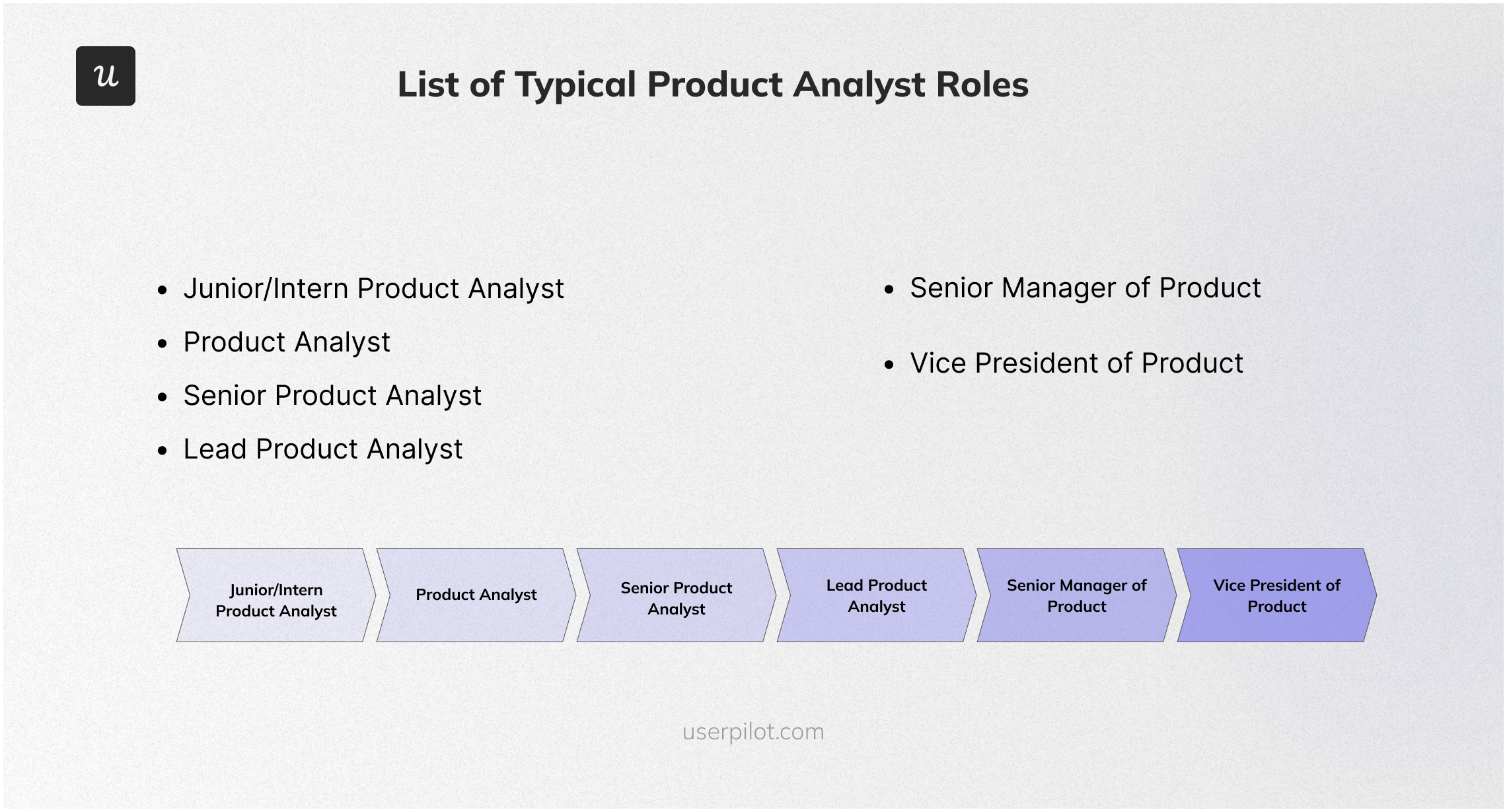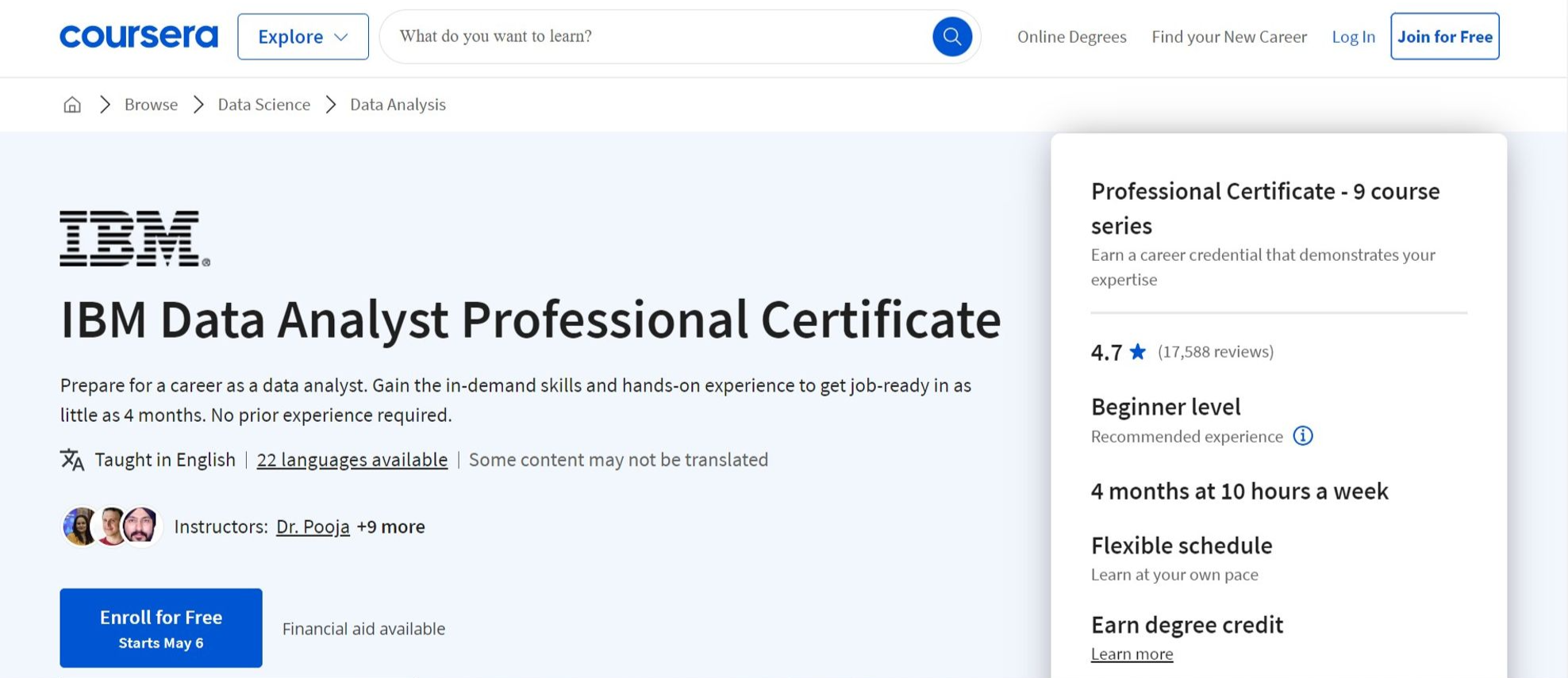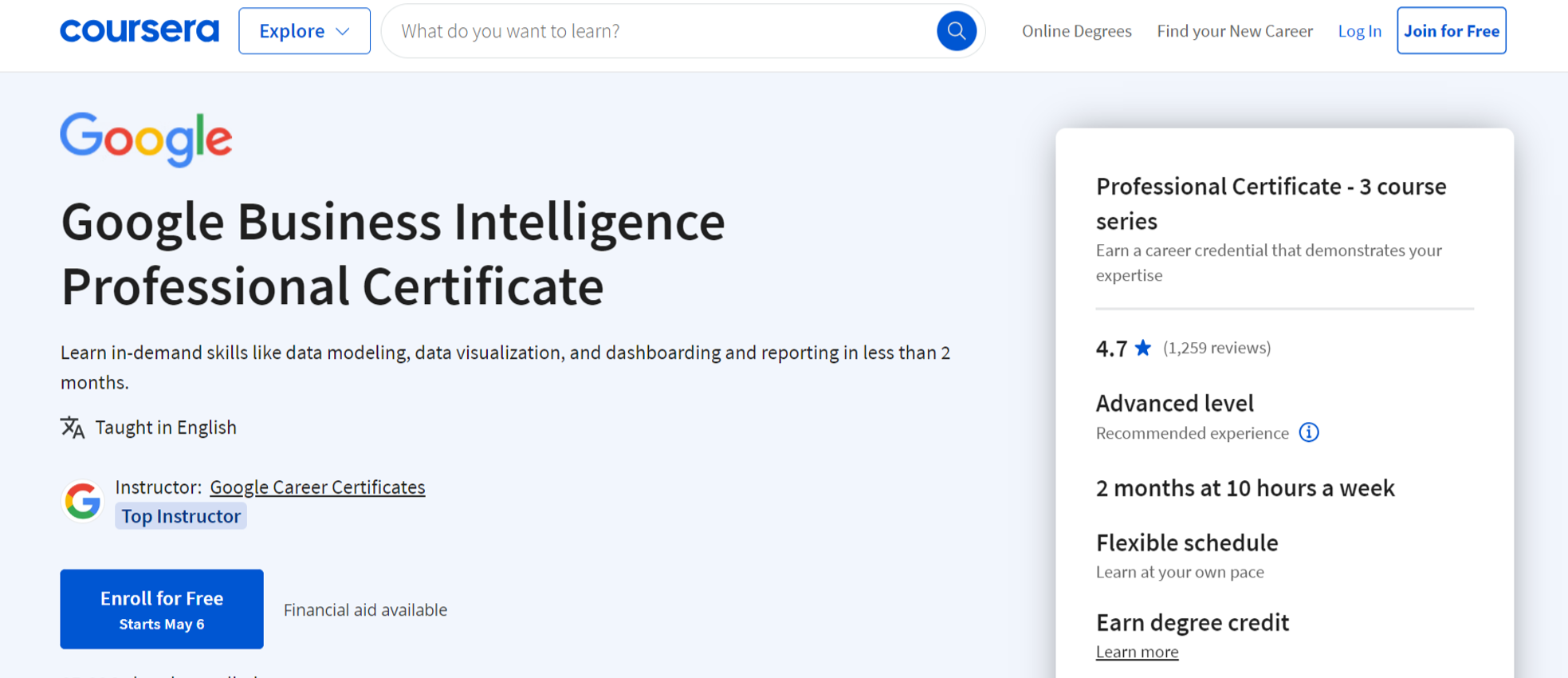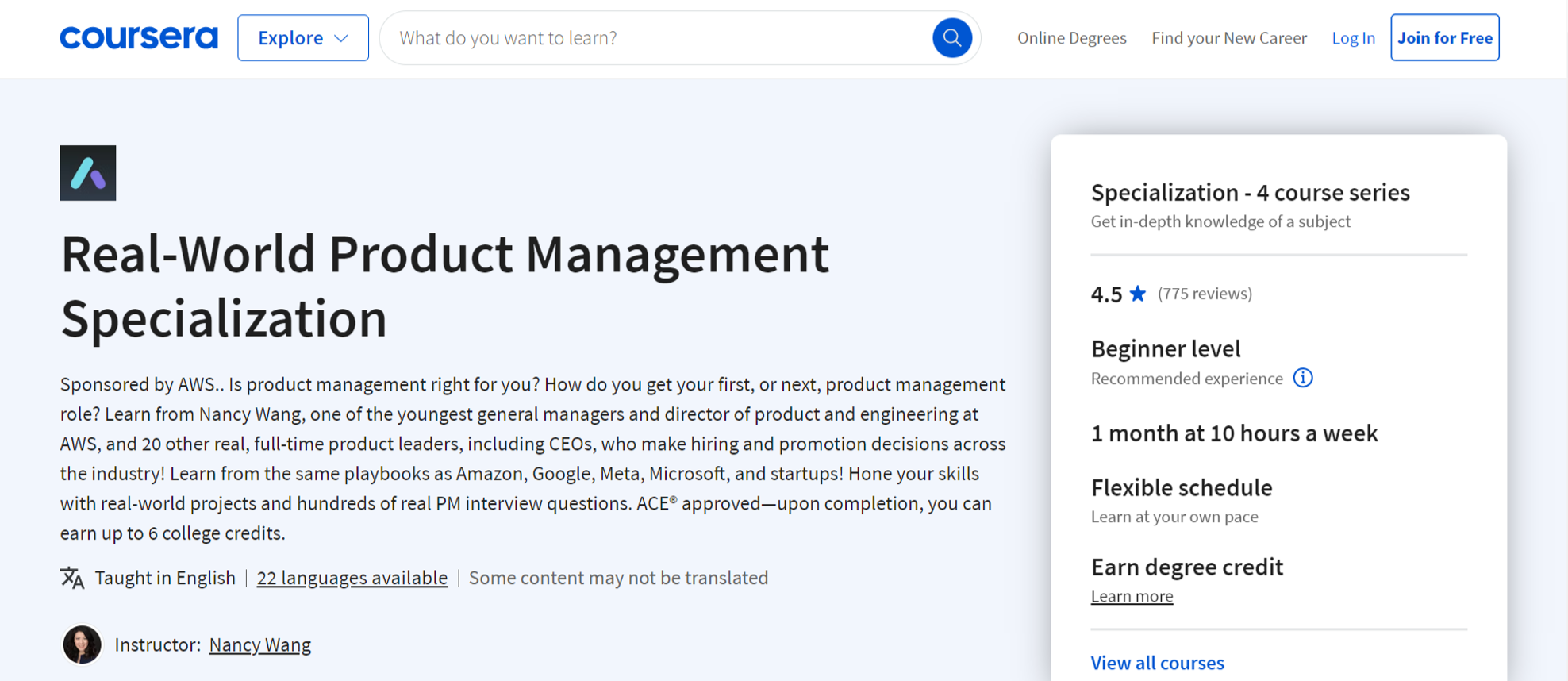![How to Become a Product Analyst [+Tools and Resources]](https://blog-static.userpilot.com/blog/wp-content/uploads/2024/06/How-to-become-a-Product-Analyst-450x295.png)
Embarking on a career as a product analyst involves a combination of education, skills development, and practical experience.
Whether you’re just starting out or looking to transition into this role, understanding the key steps and requirements is essential.
This guide will provide you with a comprehensive overview of the path to becoming a successful product analyst.
Try Userpilot Now
See Why 1,000+ Teams Choose Userpilot

What is a product analyst?
A product analyst is a professional who conducts product research, analyzes, and interprets such data to make accurate decisions about the product. Product analysis involves two major things: the product and the data.
The product analyst is a crucial role in a company because it helps you gain an understanding of your product about the user which is important to drive enough sales and grow as a company.
Product analyst’s main responsibilities
The responsibility of a product analyst can be summed up as providing insights that drive accurate and data-driven decisions. Without the product analyst, stakeholders are left to make important decisions based on guesswork.
Here is a detailed breakdown responsibilities and duties of a product analyst:
- Carrying out adequate customer research and gathering data about the use to analyze customer behavior.
- Carrying out extensive market research to identify patterns and trends that serve as pointers for product strategies.
- Making inferences from data obtained and reporting it to stakeholders in a simple and visualizing way.
- Monitoring the product market performance and proposing necessary changes.
- Assist in developing the product roadmap, aligning it with company goals, market trends, and customer requirements.
- Collaborate with cross-functional teams, including engineering, marketing, sales, and customer support, to ensure successful product delivery and adoption.
- Monitor competitor products and strategies, identifying strengths, weaknesses, and opportunities for differentiation.
- Establish and maintain a structured feedback loop with customers, internal stakeholders, and other relevant parties to gather insights for continuous product improvement.
Product analyst career path
The product analysis career path starts with the entry-level role of a junior or intern product analyst, which proceeds to Lead product analyst and goes as high as the Vice president of Product role. Here is the typical career path of a product analyst:
- Junior/Intern product analyst: The junior product analyst role is entry-level, where you get hands-on experience in product analysis. You are assigned tasks, and you assist senior product analysts in user analysis and product research, among other functions. You also learn how to use product research tools.
- Product analyst: When you gain more experience and show competence in your junior analyst role, you are promoted to product analyst. In this role, you perform functions like analyzing data, extracting insights, and preparing reports.
- Senior product analyst: A senior product analyst develops actionable insights and strategies based on the research and analysis results.
- Lead Product Analyst: A lead product manager leads the product analysis efforts and monitors the research, analysis, reporting, and strategy development.
- Senior Manager of Product: A senior manager of a product works closely with other product professionals, like product managers, to develop and implement product strategies obtained from product analysis.
- Vice President of Product: This is the highest role in the product analysis career, where you oversee all matters related to product analysis, development, and product lifecycle.
How to become a product analyst?
Sometimes, the job description for a product analyst includes having a bachelor’s degree in:
- Economics.
- Statistics.
- Computer science.
- Business or other related fields.
However, the requirement is not stringent as long you have relevant online certifications and necessary technical skills and soft skills. There are courses that are verified and well-acknowledged for a product analyst to start your journey of becoming one. Here are recommended certificate courses to kickstart your product analysis career:
- IBM Data Analyst Professional Certificate: In this extensive course, you will learn how to use data analysis tools like Excel, Tableau, and SQL, together with data visualization and reporting. You also get hands-on projects to work on so you can have a portfolio of work at the end of the course and a globally recognized IBM certificate.
- Google Business Intelligence Professional Course: This intensive course is geared toward individuals looking to start a career in product analysis or upskill. You will learn data visualizing, reporting, and dashboarding within the space of 2 months and obtain a certificate in business intelligence from Google.
- Real-world Product Management: Because the product analyst is involved throughout the product lifecycle, a basic knowledge of product management is needed. This course will give you comprehensive exposure on how to research the product and users, and also how to interact with other product professionals involved in the product lifecycle.
After you obtain the necessary skills and certifications in product analysis, you can start looking for an internship or junior role.
Tips for getting your first intern/junior product analyst role include:
- Joining product analyst communities and connecting with people in the career path.
- Building your brand on platforms such as LinkedIn.
- Reaching out to recruiters of companies you wish to join especially when you notice an opening.
- Browsing online for product analyst roles in your desired industry around you and applying.
What skills should a product analyst have?
Product analysis is a blend of technical and soft skills. The technical skills are in data analysis, interpretation, reporting, and research, while the soft skills needed are mainly communication and collaboration.
Technical Skills
The technical skills required in product analysis are:
- Research: Research skills are needed to get important information from industry patterns, customer interviews, and analyze market trends. Hence, there is a need for proficiency in product research tools like Userpilot, Hotjar, and Zendesk.
- Data analysis: When you get your data from your data sources, you need to clean and analyze the data. A product analyst therefore needs proficiency in data analysis tools like Tableau, Power BI, SQL, and advanced Excel as the occasion demands.
- Data Visualization and Reporting: Being able to visualize the result of your data analysis appropriately and report to stakeholders is a very crucial skill in product analysis.
- Miscellaneous technical skills: Some other add-on skills such as predictive analysis, A/B testing, product metrics, KPI development, and programming skills like Python are also needed.
Soft Skills
- Critical thinking and Creativity: A product analyst must be able to think critically and provide solutions to problems. You also need to creatively communicate your findings to stakeholders for easy understanding.
- Collaboration and Teamwork: As a product analyst, you need good collaboration and teamwork skills to work hand in hand with other individuals involved in the product lifecycle.
- Analytical thinking and attention to detail: The ability to connect dots and analyze critically in product analysis. A product analyst must be able to analyze critically and draw conclusions from data.
Best certifications for product analyst
Choosing the most appropriate certification will depend on your existing skills, what tools your company uses, and your career goals.
To get you started, here are a few suggestions:
- Certified Analytics Professional (CAP) (INFORMS): This prestigious certification validates your expertise in the entire analytics lifecycle. It covers everything from defining problems to model building and communicating insights. Earning a CAP demonstrates a high level of analytical competency and is ideal for experienced analysts.
- Google Data Analytics Professional Certificate (Google on Coursera): This practical program provides job-ready skills in data collection, analysis, and visualization using Google tools like BigQuery and Looker. It’s a great option for beginners looking to enter the field or analysts wanting to strengthen their Google data stack expertise.
- Microsoft Certified: Data Analyst Associate (Microsoft): This certification validates your proficiency in core data analysis tasks using Microsoft Azure and its data analysis tools like Power BI. It’s valuable for analysts working in Microsoft environments or wanting to showcase their Azure skills.
- IBM Data Analyst Professional Certificate (IBM on Coursera): Similar to Google’s program, this one equips you with data analysis skills using IBM’s data science tools like Watson Studio and SPSS. It’s a good choice for analysts who want to leverage the IBM data science ecosystem.
- Tableau Desktop Specialist (Tableau): This certification validates your ability to use Tableau Desktop, a popular data visualization tool. It equips you with skills to create clear and insightful data visualizations, a crucial skill for product analysts.
- Six Sigma Green Belt (Various providers): This certification focuses on process improvement methodologies. It teaches you to identify and eliminate defects in products and processes, which can be valuable for product analysts looking to optimize user experience and product functionality. (Certification is offered by multiple organizations like the American Society for Quality (ASQ) and IASSC)
Best resources for product analysts
There are insightful resources on the internet on product analysis, ranging from books to webinars to podcasts to blogs. Here is a compilation of the best resources for product analysis:”
Best books for product analysts
- Product Analytics: Applied Data Science Techniques for Actionable Consumer Insights by Joanne Rodrigues-Craig: In the book, Joanne explained in detail how to gain customer insights through data. It’s a book anyone looking to get into product analysis should read.
- Lean Analytics: Use Data to Build a Better Startup Faster by Alistair Croll & Benjamin Yoskovitz: The book explains how to leverage data to build your business and contains over 30 case studies based on real-world scenarios and interviews with founders and investors.
- Now You See It: An Introduction to Visual Data Sensemaking by Stephen Few: The book explains data visualization extensively, including how to analyze and interpret data and also present them to stakeholders.
Best webinars for product analysts
Here’s a curated list of top webinar sources packed with valuable content for product analysts covering various areas of expertise:
- Userpilot hosts webinars on product management topics where data analysis plays a crucial role. Look for webinars on user research, product metrics, and data-driven decision-making.
- Product Alliance is a product management community that occasionally hosts webinars on using data to inform product decisions. These webinars can help product analysts understand how their work impacts the product roadmap.
- DataCamp offers free and paid webinars on various data analysis topics, including SQL queries, data manipulation in Python or R, and data visualization best practices.
- Tableau frequently hosts webinars on data visualization using their popular software. You can also find webinars on broader data analysis topics.
Best blogs for product analysts
- Userpilot: The userpilot blog covers different topics on product analysis in-depth.
- Product Talk: Product Talk is a blog resource for every individual in product, including product analysts, product managers, and product marketers.
- IBM Big Data and Analytics Blog: The IBM Big Data and Analytics Blog is where you get to read from thought leaders in the data analytics world.
Best podcasts for product analysts
- RAMP By InsightSquared: The podcast by InsightSquared provides insight on how to scale your SaaS using analytics.
- Best Podcast for Data Visualization: Data Stories: The podcast focuses on data visualization and features real-world scenarios.
- The Product Podcast: The product podcast speaks to product professionals and covers topics ranging from interviews with top product individuals to career advice for people looking to get into the product world.
Best tools for product analysts
- Best tool for Product Analysis (Userpilot): Userpilot gives you insight into your product performance and helps you understand user behavior.
- Best tool for Product Insights (Mixpanel): Mixpanel helps you understand your customer experience and find out what works and what does not.
- Best tool for Business Intelligence (Tableau): Tableau is a business intelligence tool that helps you transform your data into insights you can easily present to stakeholders.
- Best tool for Data streamlining and presentation (Power BI): With Power BI, you can connect data from different sources and analyze and visualize them for easy data reporting.
- Best tool for Data Visualization (Google Charts): Google Charts provides a variety of chart and graph types for top-notch data visualization, making your presentation detailed and insightful.
Product analyst FAQs
- Who can become a product analyst?
Anyone can become a product analyst by learning the necessary skills and experience. However, although it is not stringent, most recruiters add a degree in business, statistics, or economics to job requirements.
- Is product analyst a technical role?
The product analyst role is partially a mix of technical and soft skills. You need to learn how to use data analysis tools like SQL, Power BI, Excel, and Tableau and product analytics tools such as Userpilot and Mixpanel to make some headway in your career.
- What is a product analyst vs a data analyst?
A product analyst is like a niche in data analytics. A product analyst focuses on a product while a data analyst works on data generally.
- What is the role of a product business analyst?
A product business analyst helps to ensure that the product is aligned with customer needs and, when needed, based on customer feedback, suggests possible product iterations for customer retention.
Conclusion
Becoming a successful product analyst requires dedication, continuous learning, and a proactive approach to developing relevant skills.
By following the outlined steps and leveraging the resources available, you can effectively navigate your career path and achieve your professional goals.
We hope this guide has provided you with valuable insights and practical advice to help you on your journey to becoming a proficient and impactful product analyst!
Looking into tools for product analysts? Userpilot is an all-in-one product platform with engagement features and powerful analytics capabilities. Book a demo to see it in action!











